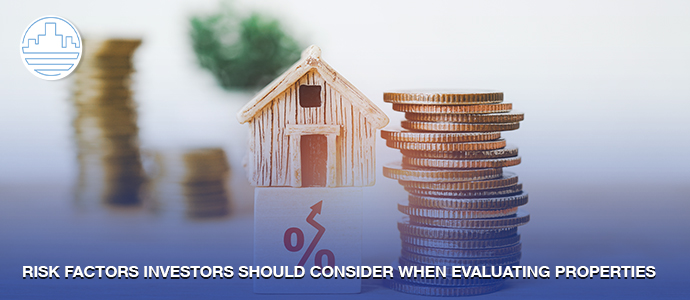
As far as investing is concerned, the real estate sector has appealed to investors since ages. Given a choice, more serious investors prefer purchasing property as an investment over bonds, mutual funds etc. Nevertheless, just like any other venture, there are risks and rewards of real estate investment as well. Whether you are a first-time home buyer or an experienced pro, it is important to know about the risk factors before you make the purchase. Here’s a list of real estate investment risks you should be aware of.
6 Types Of Risks In Real Estate Investment
Structural Risk:
This real estate investment risk has everything to do with the financial structure of an investment and the rights that the structure offers to its individual participants. Unlike the name suggests, it has nothing to do with the actual physical structure of your property. As you are aware, in a standard investment, there are 3 parties – a sponsor, a lender, and then equity investors. When debt is involved, repayment in the event of liquidation is done based on rankings. A senior secured loan will be the first to get a pay out; equity holders are the last ones to receive it. Thus, equity investors have to face the highest level of risk.
Similarly, when a joint venture is formed, a legal agreement is drafted that mentions each participant’s contributions and profit distributions. So structural risk is also present in this scenario.
General Market Risk:
Inflation, deflation, recession, the general economy, interest rates, and several other market developments cause ups and downs in all investment sectors. And although market volatility cannot be avoided, smart real estate investors generally safeguard themselves with a diversified investment portfolio. They also get in touch with experts and take their help to figure out a plan based on overall market conditions.
Financial Risk:
Financial risk is directly proportional to the amount of debt you have taken to purchase a property. Since interest rates are always fluctuating, this can lead to an increase in the financing costs. What are the terms of your investment? How much are you willing to invest? For what duration? What is the rate of return? All these questions need to be answered before investing in a property. Afterall, the rate of return should always be proportional to the level of risk involved. Wondering which property is an example of a high-risk investment? If you want to take on more risk as an investor, you can buy a C Class building in a C Class locality. You can then strive to bring about a change and upgrade the area so that the returns would be higher.
Asset-Level Risk:
There are many types of properties you can invest in – these types are known as asset types. Investment in any asset type comes with some risks. For example, since residential apartments are always in demand no matter what the economic condition, multifamily real estates are considered to be low-risk. However, they also often provide comparatively lower profits. A high-risk investment is characterized by either a huge chance of loss of capital, or under-performance of the property. For example, hotels provide short, seasonal stays and depend a lot on the travel and tourism sector. They are therefore considered to be high-risk investments. But their profit margins are higher compared to apartments, shops or offices.
Legislative Risk:
Out of the many types of risks in investment, this is the one that needs careful consideration. Modifications or changes in regulations by the government can substantially hamper your business prospects; these changes might adversely affect your real estate investments. Legal regulations like registration procedures, rent control laws, taxes, tenant laws etc. should be studied carefully before investing.
Location Risk:
This type of risk refers to the actual location of the property. Where is the property you are considering located? Is it in an urban area or is it in a suburb? Is it in an up-and-coming location, or is the area gentrifying? Which schools, grocery stores, and hospitals are in the vicinity? What are the crime rates like? Which types of real estate investments are you considering in the locality- commercial or residential? Where you invest will decide how much profit you will reap.
Tackle Real Estate Investment Risks With BFPM
Property experts at Beach Front Property Management carefully study and analyze the real estate market for you and evaluate all the risks involved. Our specialists not only help you with expanding your investment portfolio but also take care of everything, from multifamily property management, and commercial property management to new construction lease-up and utility management and cost reimbursement. For more information, do schedule a quick 15-minute consultation call with us. We’ll be happy to help.
Read our related post here:
3 Reasons For Making Real Estate Investments During A Recession
Learn more about how we can help. Customized solutions for large portfolios!
